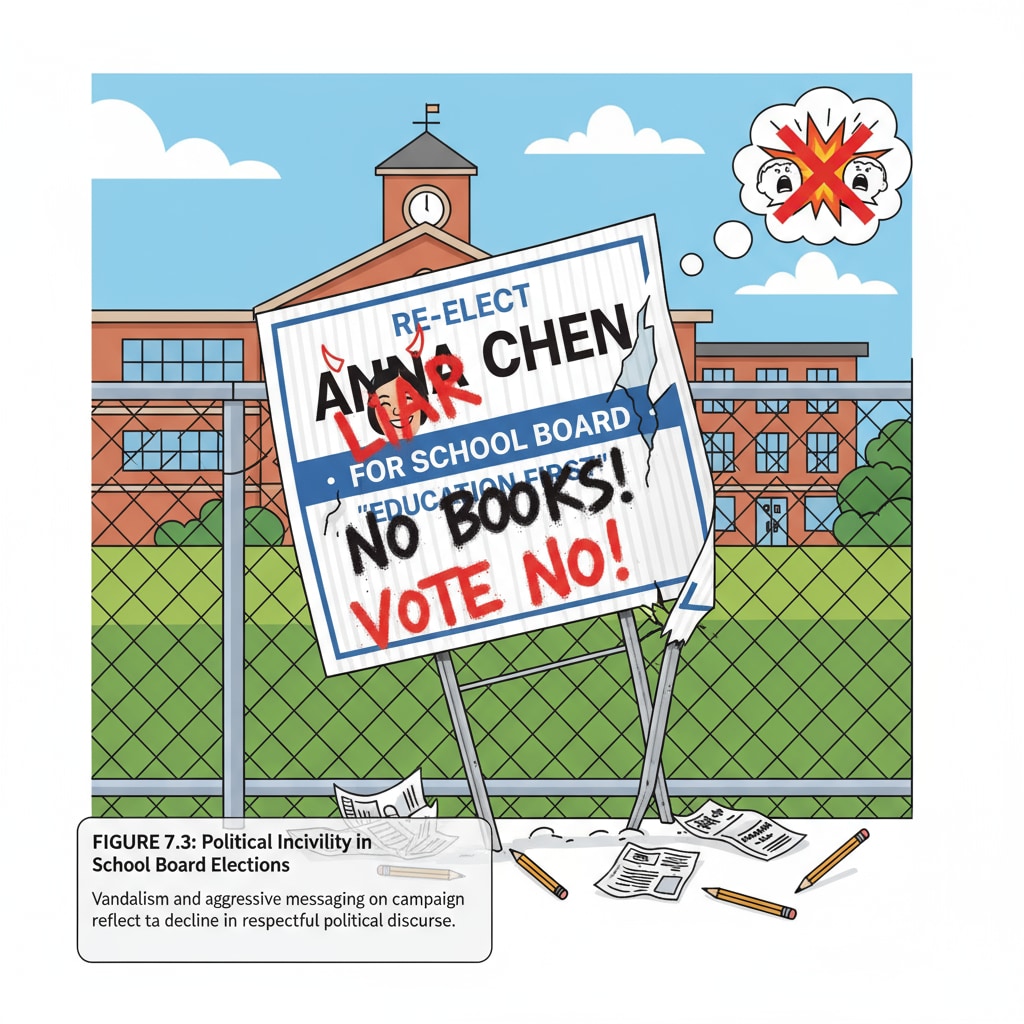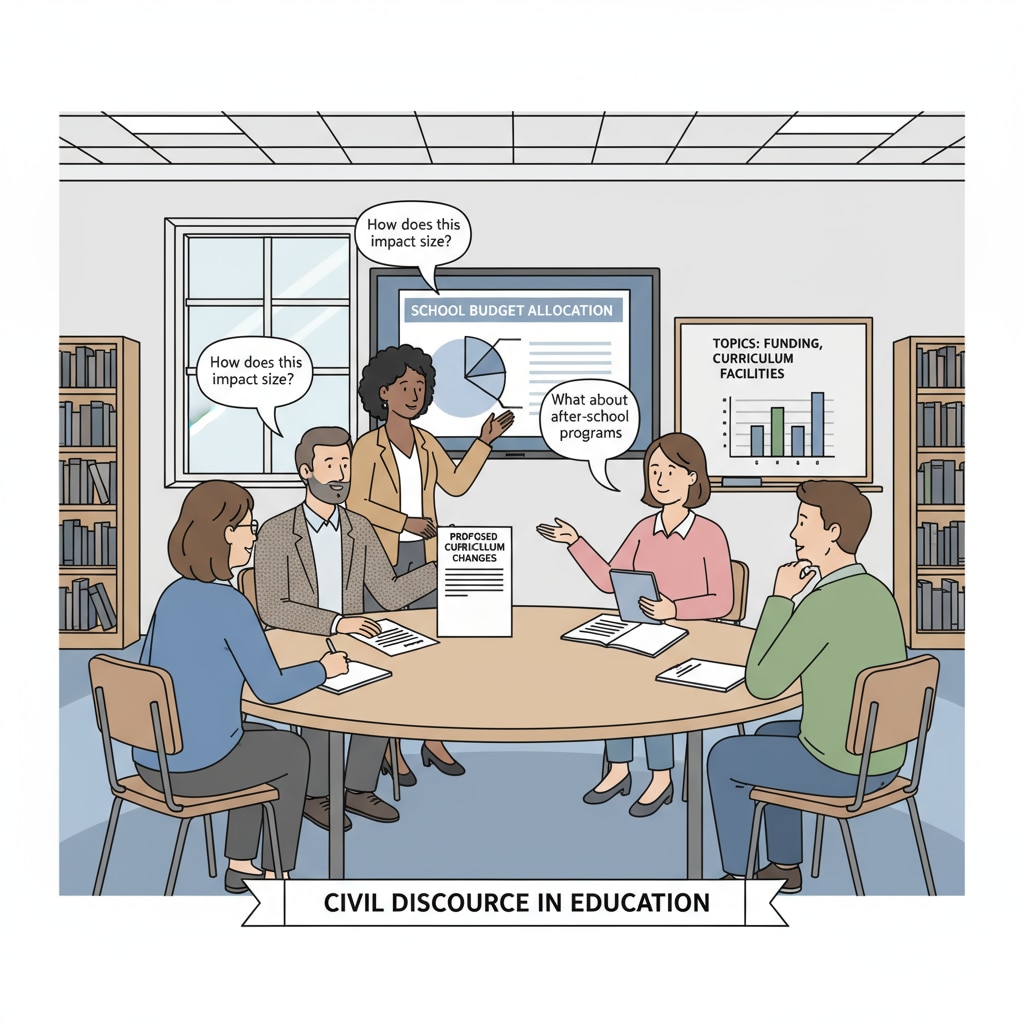The issues of school boards, political civility, and campaign conflicts have come to the forefront in recent times, especially with incidents like the one in New Jersey where a school board candidate drove over a rival’s campaign sign. This incident is not just an isolated act of unruly behavior but a symptom of a deeper political civility crisis in contemporary K12 education governance.

The Politicization of Education and Its Risks
In recent years, education has increasingly become a battleground for political ideologies. School boards, which are supposed to focus on educational policies, curriculum development, and student well – being, are now often caught in the crossfire of political disputes. For example, decisions regarding what textbooks to use, which teaching methods to adopt, and even how to handle issues like student discipline are being influenced by political agendas. This politicization of education can have several negative consequences. It may lead to a lack of focus on the real needs of students, as decisions are made more with an eye on political gain rather than educational improvement. Education politics on Wikipedia
The Erosion of Political Civility
The New Jersey incident is a clear indication of the erosion of political civility in school board elections. Civility in politics is essential as it allows for healthy debate, the exchange of ideas, and the peaceful resolution of differences. However, in the context of school board elections, we are seeing an increase in hostile behavior, smear campaigns, and unethical tactics. This not only undermines the integrity of the election process but also creates a toxic environment for educators, students, and parents. When candidates engage in such behavior, it sets a bad example for the community and can discourage qualified individuals from running for school board positions. Political culture on Britannica

Rebuilding an education governance civilization centered on students is crucial. This requires a return to the fundamental purpose of education – to provide the best possible learning experience for students. School board candidates should be selected based on their knowledge of education, their commitment to student success, and their ability to work collaboratively. Political parties and special interests should not be allowed to overshadow the interests of students. By promoting political civility, we can create an environment where education policies are debated and decided in a rational and respectful manner.
Readability guidance: In this article, we have explored the complex issues surrounding school board elections, the risks of politicization, and the importance of political civility. By understanding these issues, we can work towards a more student – centered education governance system. We used short paragraphs to convey ideas clearly and inserted relevant images to enhance understanding. Transition words like ‘however’ and ‘for example’ were used to make the flow of the article smooth.


